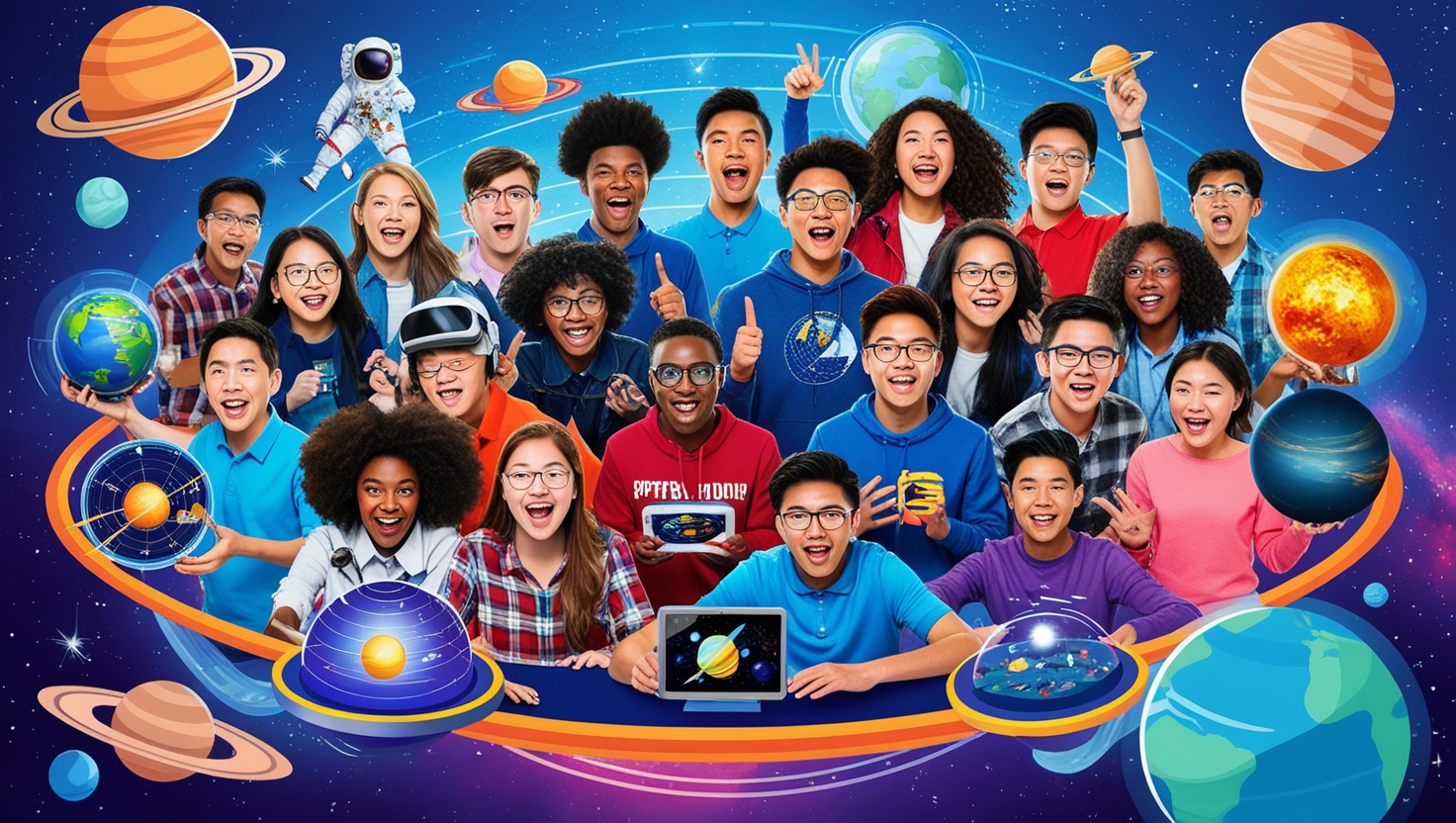Whether you’re a teacher, parent, or mentor looking to inspire the next generation of astronomers and space explorers, here are some stellar ideas to create an unforgettable experience for kids aged 10-18.

1. Build Your Own Solar System Model
- Description: Encourage hands-on learning by having participants create their own solar system models. Use various materials like clay, Styrofoam balls, and paints to replicate planets, moons, and asteroids.
- Educational Value: This activity helps kids understand planetary sizes, distances, and orbital patterns. It also sparks creativity and teamwork.
2. Virtual Reality Space Exploration
- Description: Utilize VR technology to simulate space missions or planetary exploration. Virtual tours of the International Space Station or Mars can be both educational and thrilling.
- Educational Value: VR enhances spatial understanding and allows kids to experience space environments firsthand, fostering interest in space technology.
3. Design a Space Habitat
- Description: Task kids with designing a habitable space station or Martian colony. They can create blueprints, consider life support systems, and design living quarters.
- Educational Value: This project teaches about the challenges of space habitation, including gravity, radiation, and resource management.
4. Celestial Body Presentations
- Description: Assign each participant a celestial body (planet, moon, comet, etc.) to research and present. Encourage them to use multimedia tools like PowerPoint or Prezi for their presentations.
- Educational Value: Researching specific celestial bodies enhances knowledge of astronomy, geology, and space exploration history. Public speaking skills are also developed.
5. Space Debate
- Description: Organize a debate on controversial space topics, such as the ethics of space colonization, the search for extraterrestrial life, or the future of space tourism.
- Educational Value: Debates encourage critical thinking, argumentation skills, and understanding of multiple perspectives on complex space-related issues.
6. Star Party and Stargazing
- Description: Host an evening event where participants can observe celestial objects through telescopes. Provide guidance on identifying constellations and planets.
- Educational Value: Stargazing promotes appreciation for the night sky and reinforces concepts like celestial navigation and astronomical observation.
7. Space-themed Art Exhibition
- Description: Invite kids to create space-themed artworks such as paintings, sculptures, or digital art. Display their creations in an exhibition.
- Educational Value: Artistic expression combined with scientific themes encourages interdisciplinary thinking and creativity in interpreting space concepts.
8. Guest Speaker from the Aerospace Industry
- Description: Invite a guest speaker who works in the aerospace industry or research field to talk about their experiences, current projects, and the future of space exploration.
- Educational Value: Hearing from professionals provides insight into career opportunities in space science and technology, motivating kids to pursue related fields.
9. Space Trivia Quiz
- Description: Organize a space-themed quiz competition covering topics like astronomy, space missions, famous astronauts, and scientific discoveries.
- Educational Value: Quizzes reinforce knowledge gained from presentations and readings, making learning fun and competitive.
10. Interactive Space Simulations
- Description: Use online simulations or mobile apps that allow kids to explore the solar system, launch rockets, or solve space-related puzzles.
- Educational Value: Simulations offer interactive learning experiences that enhance understanding of space physics, orbital mechanics, and spacecraft operations.
Conclusion
Engaging kids aged 10-18 in space presentations not only stimulates their curiosity about the universe but also nurtures their scientific inquiry and creativity. By incorporating these ideas into educational programs or extracurricular activities, educators and parents can inspire the next generation of space enthusiasts and innovators. Let’s ignite their passion for the cosmos and watch them reach for the stars!
